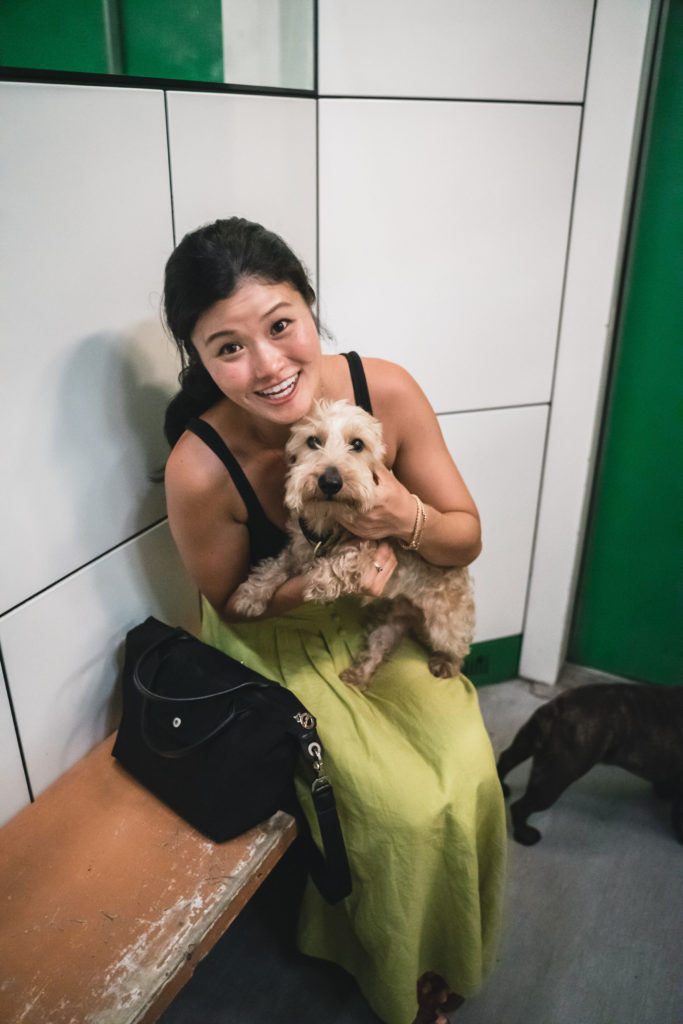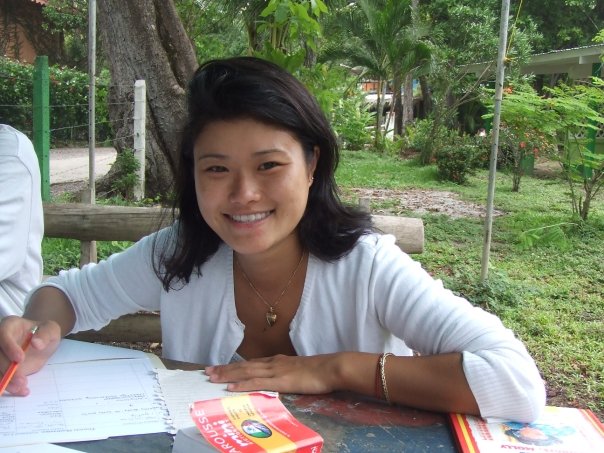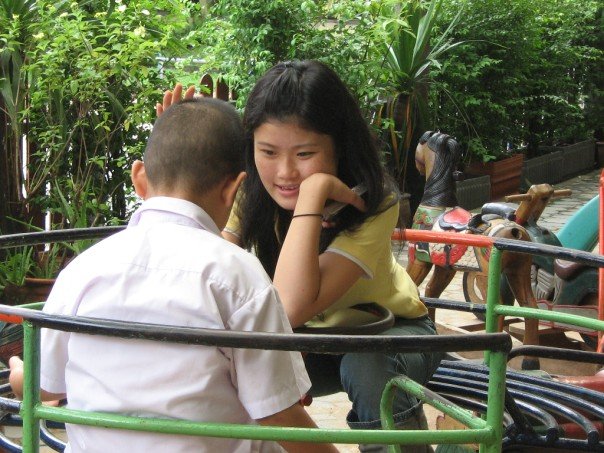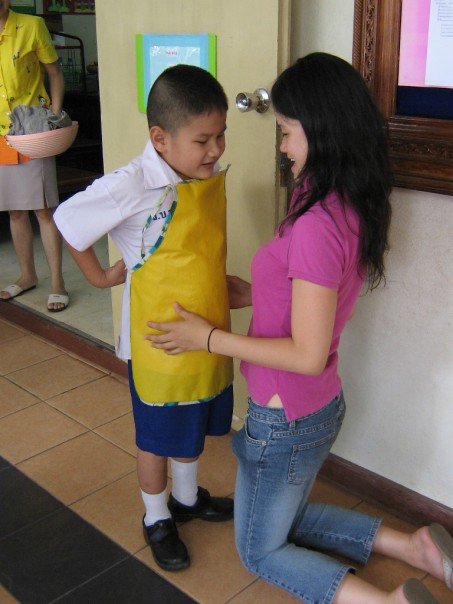“There will be blood on the walls [tears of joy emoji]”
I had written to a student’s mom earlier in the day about the location of our home-school meeting. And that was the message I received back… not in English but in their home language.
I could guess her reply was meant for her husband and couldn’t help but Google translate the one-liner email.
She was preparing for a war and we were not on the same side.
How did I end up here?
Before I took a full-time position at an international school, I was a community-based OT supporting children with developmental delays and their families.
“My child needs a school to go to!”
The parents would anxiously remind me as we collaborated on ways to get their child to be school ready and learning ready.
The real issue was that there weren’t enough (or any) international schools that were inclusive or welcoming enough to the level of needs my clients needed at the time.
Shifting the focus from community to school
As I did school visits, I’d proposed to principals and directors to start and run a pilot program for children needing an alternative learning environment on their campus. When one school agreed, I was overjoyed!
Making this program work was going to be a challenge. But this was the change I wanted to see in the international school community.
I kept telling myself, “I had to make this work. Where else were these kids going to go?”
The distress signs that I missed because I was at school
Most of the international families that I work with as an OT are solo parenting. This globally mobile lifestyle parallels a more traditional family setup with one parent working and one parent parenting.
My biggest cheers and extra support would never have been enough to fill up the void of the partner missing in daily action at home or at school. There’s additional stress of surviving the day-to-day alone with a special needs child on top of navigating an unfamiliar culture without family and friends that let you vent regularly.
This level of complex stress requires an organized mind and clear headedness of short and long-term goals for the child that it would be too easy to fall short without trusted guidance.
Over the years, I witnessed how family and home life deeply impact the learning and social life of children with special needs at school. And vice versa.
Not all children aren’t switching off emotions from home when they get to school— especially our younger ones. Those emotions slide right through the school doors when they come in.
As a learning support coordinator, I promoted the importance of home-school connection but that’s just the action required to get a better sense of understanding the child’s home-school dynamic. Teachers and families need to connect and discuss so that we see the child holistically.
To solo parents holding down the fort abroad, I see you.
You think about your child all night.
You drop off your child with worried eyes to make sure they’re starting their day off smoothly.
You think about your child all day while they’re at school.
You take a deep breath before picking up your child before school.
You worry about being told about another incident when you meet eyes with the teacher at the end of the school day.
You carry home stress after navigating the local streets and trying not to do ‘the wrong thing.’
You look for any eyes of negativity towards your child.
I know because I was raised outside of my parents’ “home ground” and my mom carrying on the day-to-day stress of solo parenting while my dad went to work week-long business trips.
How your wellbeing impacts your family’s wellbeing
Everyone has stresses that they deal with every day. It’s part of life and some stress keeps us on a growing path for the better.
But when there is prolonged stress that’s not dealt with or unexpected high stress, the capacity for parents to self-regulate affects their wellbeing. These parents go on survival mode — high alert and reactive.
As adults, especially when we get too busy going about our daily grind, we forget to check in on ourselves— “self-care”. Just because we’ve ‘matured’ doesn’t mean we are off the hook. We still need to practice our own self-regulation strategies so we can handle our own stresses to help the little humans handle their stresses.
An online OT’s approach to family-centered care plan
As an OT, I bring these questions with me when I’m working with international solo parents to help identify their unique set of hidden stressors:
Crosscultural considerations
- How comfortable do you feel expressing yourself in the school or therapy language?
- How supportive are your own parents when it comes to looking after your child with special needs? Do they understand, accept and welcome their differences?
Balancing family dynamics
- Who else can look after your child if you’re not able to? Are you even allowed to get sick?
- Besides your child with special needs, who else needs your attention?
Celebrating wins
- Who are you celebrating your child’s wins with after they finally get to bed?
- When do you celebrate your own wins? With whom?
Self-care
- When is your work day over as a solo parent? Do you get benefits of self-care and leisure with this job?
- When’s the last time you had time to kick back and have a glass of bubbly with your friends?
- Who are your friends anymore?
- When do you get to sleep in?
These are questions I didn’t allow myself to ask at school. If we were to meet at school, our focus would be on your child and their school performance. I woulnd’t read these off a list and give them to you for homework. We start tackling these one by one and start becoming aware of your experience and preferences.
This is why I love being a community-based OT with an online practice to bridge your wellbeing between moves to better understand the child to take steps forward. I can lean into caring for the whole family and check in on you because your wellbeing matters!
An international family with special needs needs to understand this
Each international family care plan is unique and their location adds complexity with what or who is available locally. It doesn’t make sense to have to find a support team at every location. There is a lot of time and narrative wasted between moves.
And needs change over time depending on what family members are going through. Maybe your oldest child needs to focus on college applications and needs more help from you this year. Or your own dad just passed away and your mom needs help transitioning emotionally and moving to a smaller place. Maybe it’s you — you need a different way of showing up to your family.
Every location, every year, every teacher, every school is going to introduce different elements to your family life — positive and negative.
Having a borderless therapist will help you look after yourself and your child with special needs across all those moves.
Still unsure how you might benefit from working with me?
Let’s get on a call to identify a few ways we could work together to set you up for success! You can send me an email now to schedule a meeting: hello@ayaninomiya.com The first meeting is on me 🙂





